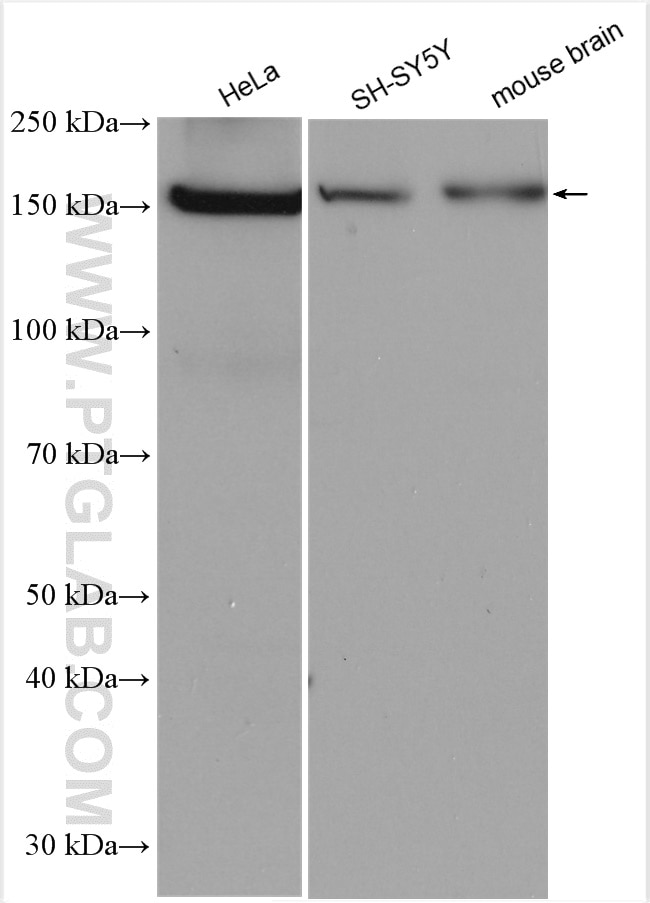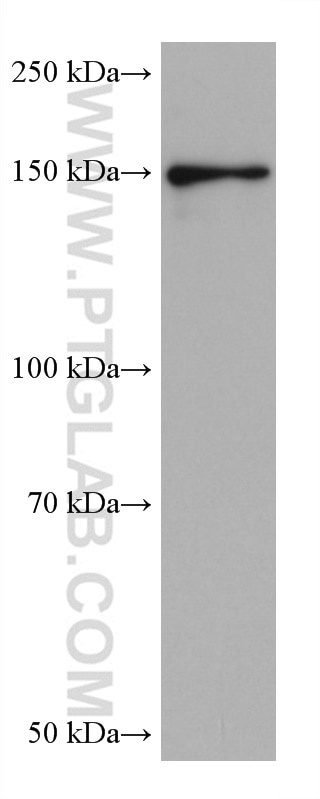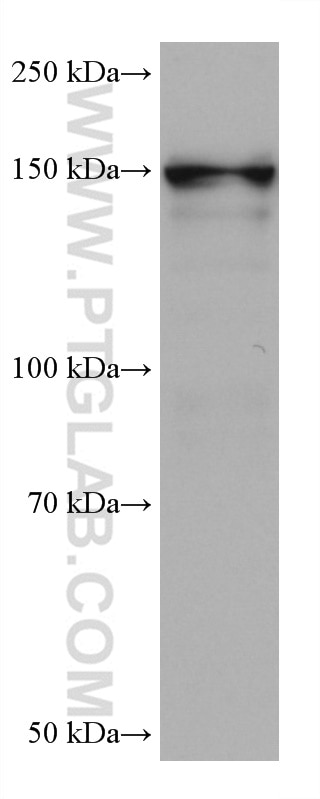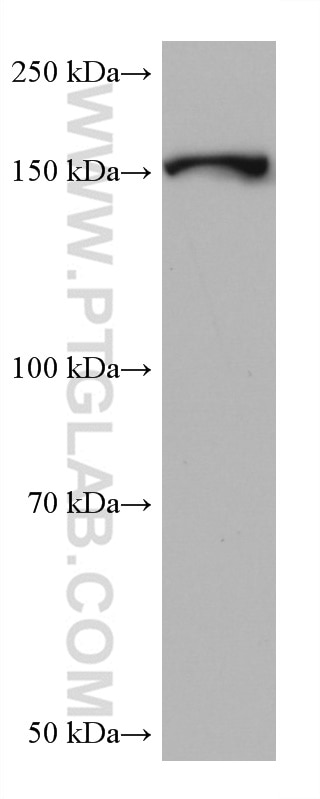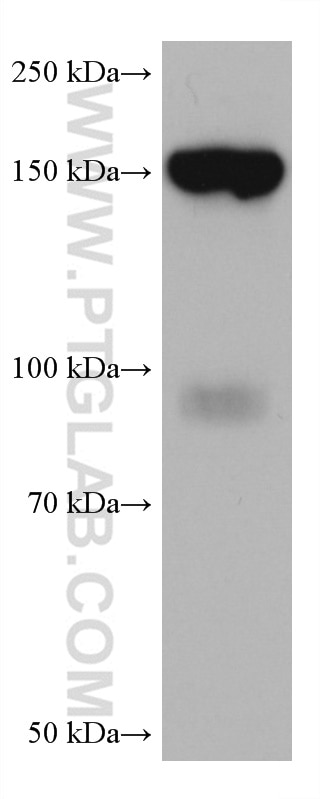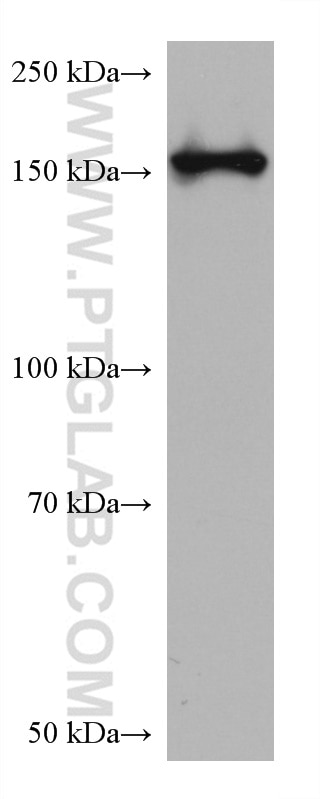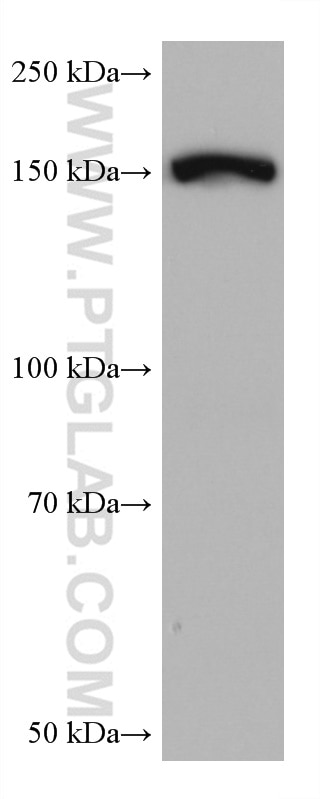Anticorps Monoclonal anti-PPARGC1B
PPARGC1B Monoclonal Antibody for WB, ELISA
Hôte / Isotype
Mouse / IgG1
Réactivité testée
Humain, porc, rat, souris
Applications
WB, ELISA
Conjugaison
Non conjugué
CloneNo.
2D2E8
N° de cat : 67821-1-Ig
Synonymes
Galerie de données de validation
Applications testées
| Résultats positifs en WB | cellules HeLa, cellules MCF-7, cellules SH-SY5Y, tissu cérébral de porc, tissu cérébral de rat, tissu cérébral de souris |
Dilution recommandée
| Application | Dilution |
|---|---|
| Western Blot (WB) | WB : 1:2000-1:10000 |
| It is recommended that this reagent should be titrated in each testing system to obtain optimal results. | |
| Sample-dependent, check data in validation data gallery | |
Applications publiées
| WB | See 2 publications below |
Informations sur le produit
67821-1-Ig cible PPARGC1B dans les applications de WB, ELISA et montre une réactivité avec des échantillons Humain, porc, rat, souris
| Réactivité | Humain, porc, rat, souris |
| Réactivité citée | rat, souris |
| Hôte / Isotype | Mouse / IgG1 |
| Clonalité | Monoclonal |
| Type | Anticorps |
| Immunogène | PPARGC1B Protéine recombinante Ag28861 |
| Nom complet | peroxisome proliferator-activated receptor gamma, coactivator 1 beta |
| Masse moléculaire calculée | 1023 aa, 113 kDa |
| Poids moléculaire observé | 150 kDa |
| Numéro d’acquisition GenBank | BC132971 |
| Symbole du gène | PPARGC1B |
| Identification du gène (NCBI) | 133522 |
| Conjugaison | Non conjugué |
| Forme | Liquide |
| Méthode de purification | Purification par protéine G |
| Tampon de stockage | PBS avec azoture de sodium à 0,02 % et glycérol à 50 % pH 7,3 |
| Conditions de stockage | Stocker à -20°C. Stable pendant un an après l'expédition. L'aliquotage n'est pas nécessaire pour le stockage à -20oC Les 20ul contiennent 0,1% de BSA. |
Protocole
| Product Specific Protocols | |
|---|---|
| WB protocol for PPARGC1B antibody 67821-1-Ig | Download protocol |
| Standard Protocols | |
|---|---|
| Click here to view our Standard Protocols |
Publications
| Species | Application | Title |
|---|---|---|
Chem Biol Interact N-acetylcysteine delayed cadmium-induced chronic kidney injury by activating the sirtuin 1-P53 signaling pathway | ||
Sci Rep Dietary oleic acid intake increases the proportion of type 1 and 2X muscle fibers in mice |
